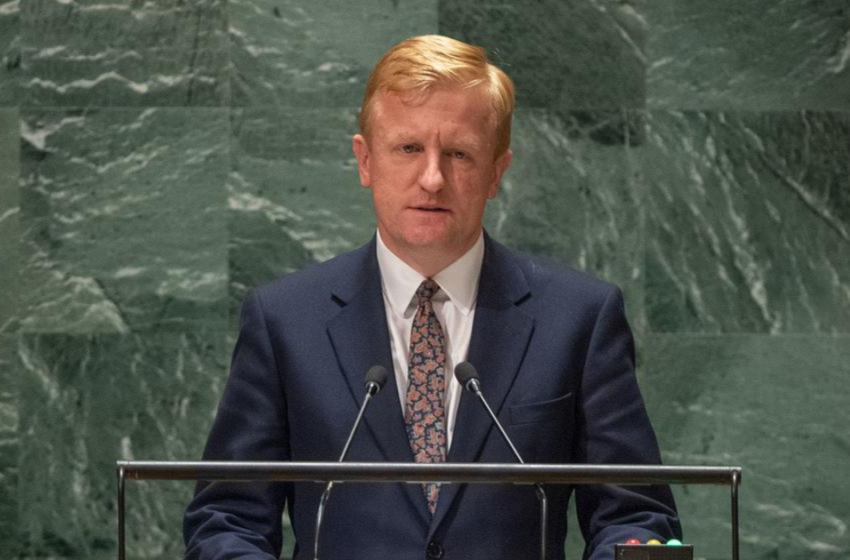
AI’s promise and perils: UN assembly discussion
Standing on the brink of a technological revolution, speakers at the General Assembly today continued the annual high-level debate by contrasting the risks and benefits of this progress, along with its potential to either perpetuate inequality or facilitate development. This comes after a widespread shift to digital solutions in response to the COVID-19 pandemic and rapid advancements in artificial intelligence.
Examining drawbacks and risks
The General Assembly of the United Nations is scheduled to discuss artificial intelligence (AI) and consider a resolution outlining the possible advantages and disadvantages of this game-changing technology as well as calling for the creation of global standards. Maltese Prime Minister Robert Abela urged international action to turn the quickly developing technology into “a global good,” highlighting the profound effects of AI on all facets of society. Highlighting the promise of AI technology to improve public services, he presented his nation’s pilot programs in everything from traffic control to health care.
He said that Malta, like many emerging nations, has tapped into hitherto untapped markets by using digital technologies. Co-sponsored by a number of nations, the resolution expressly excludes military AI from its purview while highlighting the significance of regulations intended to advance the security, safety, and reliability of AI systems. The resolution, which highlights the benefits of AI, also asks for actions to close the digital divide inside and across nations. While advocating for a legal framework to guarantee that artificial intelligence is utilized ethically, Barbados’ prime minister, Mia Amor Mottley, said that many people are not currently focusing on this issue. She emphasized the need for significant changes in governance by pointing out that 735 million people experienced chronic hunger as of 2022 and that more people are expected to be hungry in 2030 than in 2015.
Strategies for responsible AI deployment
The draft resolution, which is the first of its type on this matter and was proposed by the US, is set to be presented to the assembly for adoption on Thursday. In accordance with the Sustainable Development Goals of the UN, it aims to enable digital transformation and fair access to AI, ensuring a brighter future for mankind by 2030. As AI technologies develop quickly, US Ambassador to the UN Linda Thomas-Greenfield underlined the need for coordinated action. But according to International Crisis Group analyst Richard Gowan, the US seems to be using the development angle as a tactic to win over less developed countries. The draft resolution tackles worries about the loss of human rights, the strengthening of biases, and the risks to the security of personal data, even as it acknowledges the threats posed by the abuse of AI. It exhorts member states to desist from deploying AI systems that contravene international human rights legislation or unduly jeopardize the enjoyment of human rights.
Strengthening global governance
The prime minister of Tuvalu, Kausea Natano, echoed this when she said that implementing a “digital nation approach” can provide people access to possibilities in the areas of economics, healthcare, and education that were previously unattainable. As it will help bring creative solutions to climate and environmental concerns, embracing such a digital transformation is critical for small island states as well as the global community. For this reason, he affirmed a vision of a digital revolution that will empower people and communities with knowledge, connectivity, and access to basic services.
AI regulation has been given top priority by UN Secretary-General Antonio Guterres, who has called for the creation of a UN agency that would be fashioned after institutions such as the International Atomic Energy Agency (IAEA). In addition, he has cautioned against prejudice in technologies that are mostly created by males and drawn attention to the possibility of misinformation. Ntsokoane In the same spirit, Lesotho’s prime minister, Samuel Matekane, declared that technology is essential to combating illnesses and pandemics. He did, however, note that although the present digital era “compels our countries to ensure wide access to digital tools,” complete internet access is still difficult for rural populations, which feeds inequality even more. Furthermore, he emphasized the need to confront blatant dangers to safety and privacy, even while internet access has improved civic involvement, particularly for women and girls.
Conclusion
In conclusion, The US, China, and South Korea are in a competition to be the first in the UN to regulate AI, and the White House has released guidelines to guarantee US dominance in this field. Government regulation of AI technology is essential, according to President Joe Biden.


